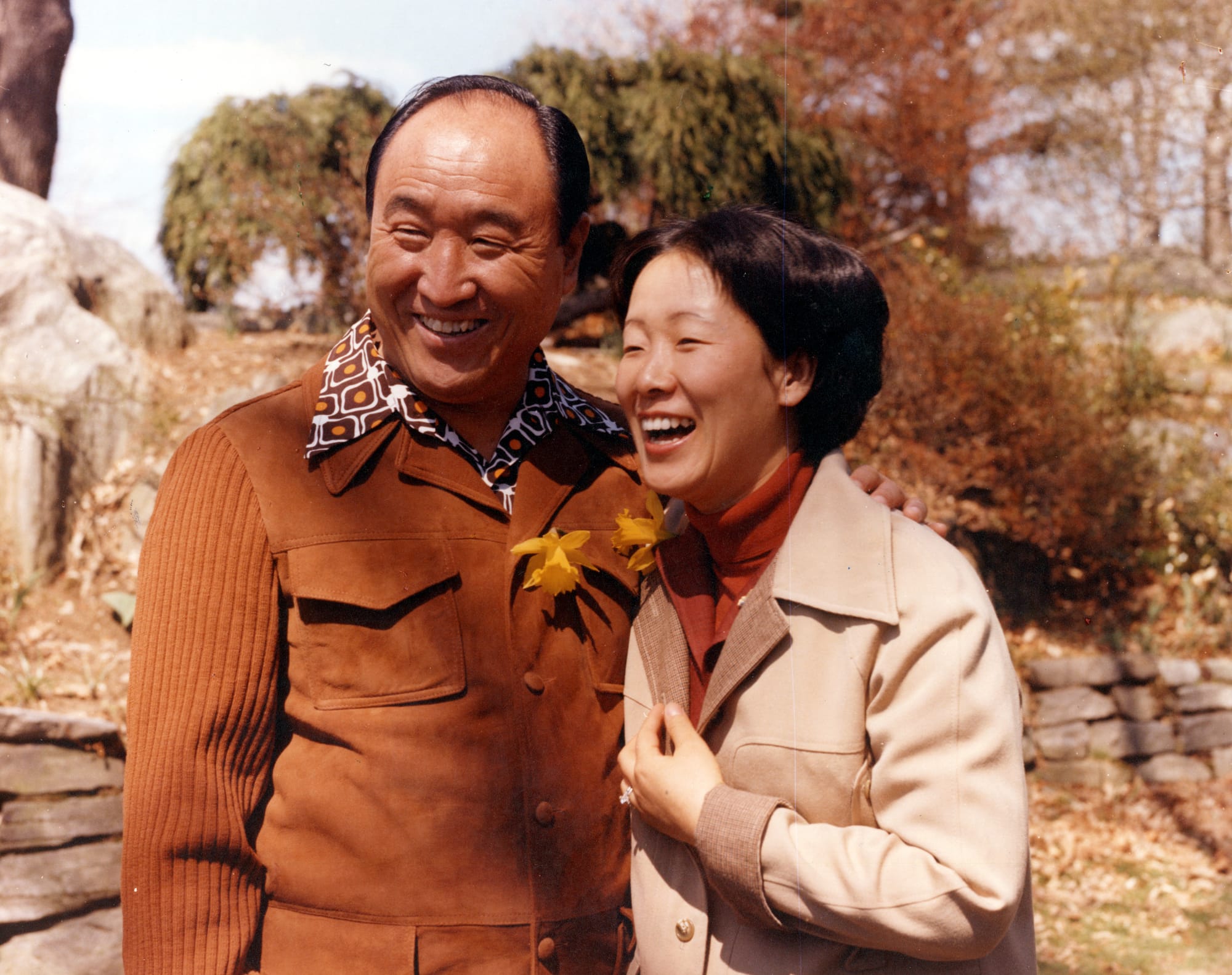True love is sacrificial Love. It calls forth self-sacrifice in the service of others. Love prompts us to get involved in the knotty problems of the world, gives us the strength to bear with the failings and weaknesses of others, and moves us to help others regardless of the cost.
We have the example of Jesus Christ, who, out of love, offered his life to redeem sinful humanity. Moses in his time, and Muhammad as well, endured persecution and exile, risking their lives to enlighten and liberate their people—all for the love of God and humanity.
Out of Buddhism comes the figure of the bodhisattva, who vows to devote himself to save all beings. He regards his own happiness as incidental to the happiness of others and would rather not enjoy the fruits of his own spiritual progress before first liberating others.
On this topic, Father Moon describes the root of sacrificial love in God, who invested Himself endlessly in the creation to make a beautiful home for His children.
God, whoever since the fall, has continuously and sorrowfully devoted Himself as would a loving Parent to rescue prodigal humanity from the pits of sin and grief.
Such divine love is manifested every day in the human love of parents, who willingly sacrifice for their children’s future.
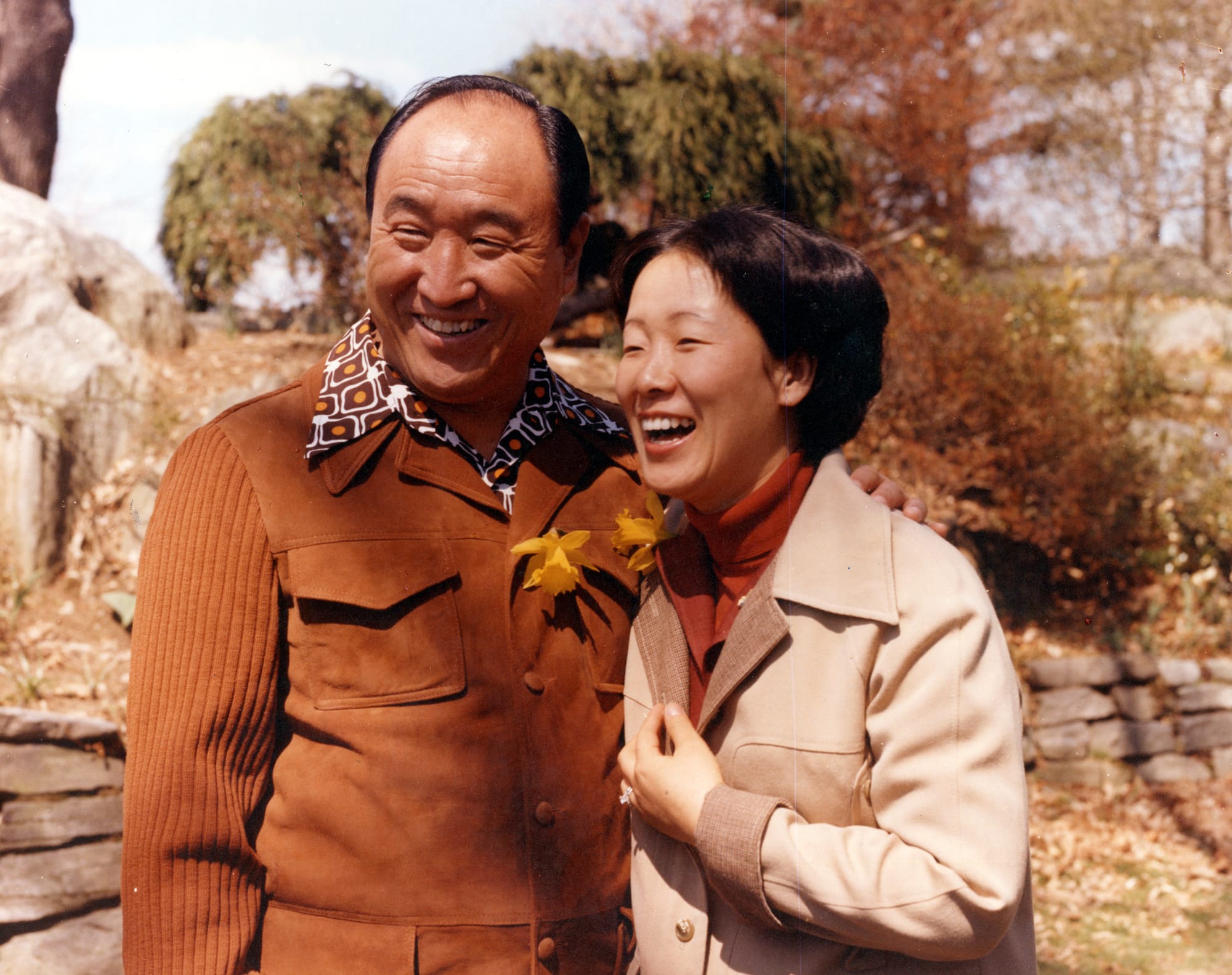
Sacrificing Everything—Even Your Life—for the Sake of Those You Love
Greater love has no man than this, that a man lay down his life for his friends. John 15.13
The Son of man came not to be served but to serve, and to give his life as a ransom for many. Matthew 20.28
Therefore, be imitators of God, as beloved children. And walk in love, as Christ loved us and gave himself up for us. Ephesians 5.1-2
Love will make men dare to die for their beloved—love alone; and women as well as men. Of this, Alcestis, the daughter of Pelias, is a monument to all Hellas; for she was willing to lay down her life on behalf of her husband, when no one else would.8 Socrates, in Plato, Symposium (Hellenism)
By this we know love, that he [Christ] laid down his life for us; and we ought to lay down our lives for the brethren. But if anyone has the world’s goods and sees his brother in need, yet closes his heart against him, how does God’s love abide in him? Little children, let us not love in word or speech but in deed and in truth. 1 John 3.16-18
We, truly, have come for your sakes, and have borne the misfortunes of the world for your salvation. Do you flee the one who has sacrificed his life that you may be quickened?… Do you imagine that he seeks his own interests, when he has, at all times, been threatened by the swords of the enemies; or that he seeks the vanities of the world after he has been imprisoned in the most desolate of cities?… Verily, he has consented to be sorely abased that you may attain glory, and yet, you are disporting yourselves in the vale of heedlessness. He, in truth, lives in the most desolate of abodes for your sakes, while you dwell in your palaces. Tablets of Bahá’u’lláh Revealed after the Kitáb-i-Aqdas (Baha’i Faith)
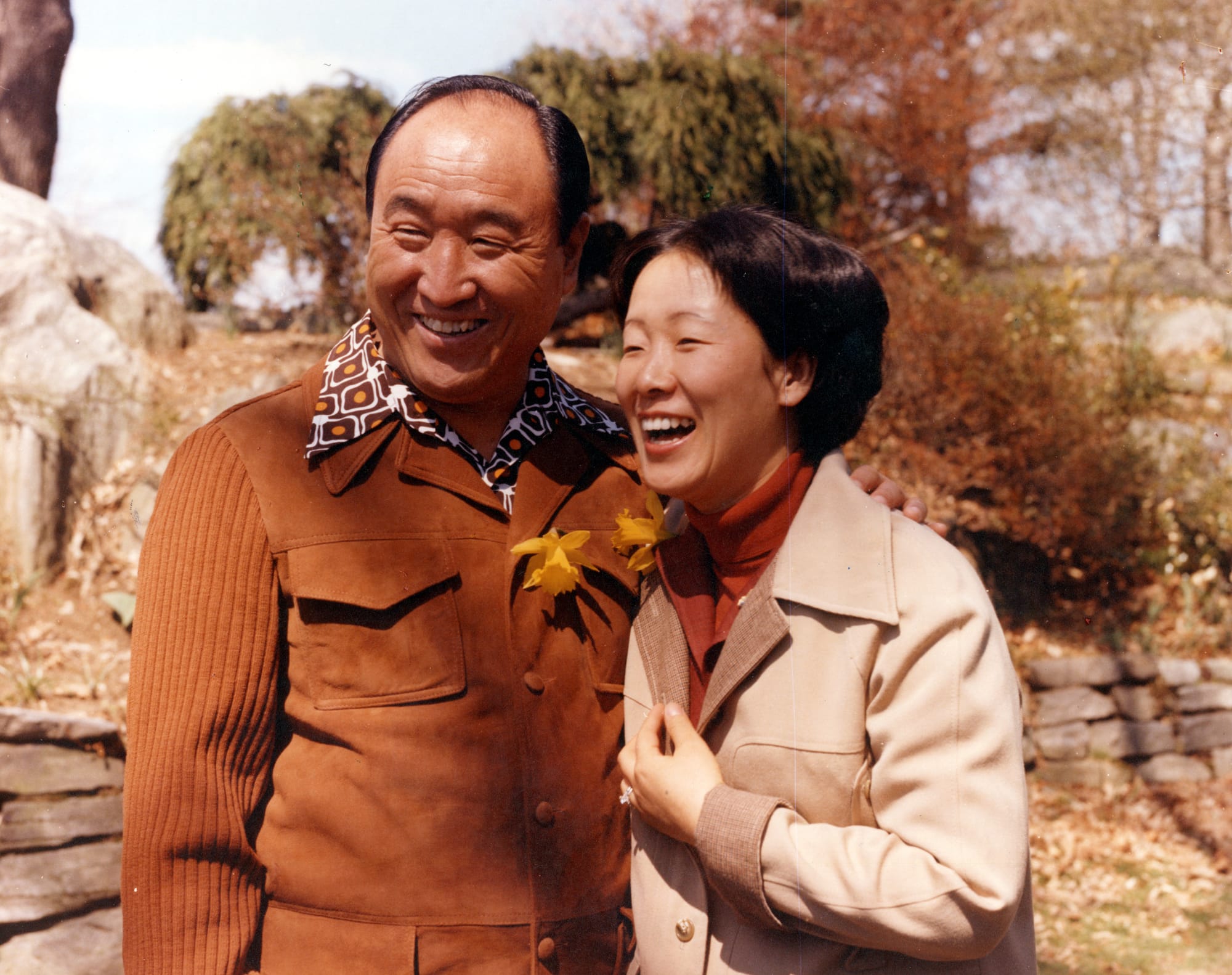
Teachings of Sun Myung Moon
If I put my life on the line to subjugate evil, then the life-giving love of God will be bestowed upon me. (40:243, February 6, 1971)
A sacrificial spirit—where for the sake of a neighbor you can throw away your life as if it were a worthless piece of straw—is exactly true love. (224:254, December 7, 1991)
Love would not be possible if human beings did not have an original nature to sacrifice. We do not think of it as a sacrifice when we sacrifice for someone we love.
We feel it is worthwhile, even as we sacrifice more and more. (63:25, October 1, 1972)
In the course of loving their children, parents will sacrifice. No matter how much they sacrifice for their children they do not take it as painful because the heart of love is contained in their sacrifice.
All the energy they expend returns to them as stimulating love. The more they give out, the more joy they feel. That is the power by which they can overcome the pain of sacrifice.
Likewise, husband and wife may make sacrifices for each other to the point of giving their lives, yet through it all, they feel joy.
In love, they can invest infinitely and feel infinite joy in return. Sacrifice in itself is consumptive; it is a minus force. How can one feel joy by becoming diminished? From a worldly viewpoint, it is impossible. However, it is possible because of love.
Why did God pour out His love?
Because without love, nothing returns. Through a relationship of love between subject and object partners, an eternal give-and-take action is set in motion, which multiplies God’s power.
Therefore, we can conclude that love establishes eternity. That is why the Bible says that God is love. According to the laws of mechanics, the output can never be greater than the input. If that were true, where love is concerned, then when God loved it would drain out all His energy and nothing would return to Him. Therefore, He set up the ideal that in loving, the output is greater than the input.
Accordingly, true parent-child relationships, true husband-wife relationships, and true brotherly relationships are established through sacrificial love. The genuineness of those relationships depends upon keeping the standard of sacrifice. Children know that their parents truly love them when they sacrifice themselves for them.
Although the sacrificial position is a sorrowful one, when the children perfectly appreciate it and return love to the parents, the parents can feel more joy.
Likewise, a couple that sacrifices for each other finds their love constantly renewed, revived by the power of sacrifice.
A husband and wife who share their suffering with each other can become one eternally. True friends also, are also those who sacrifice themselves for each other. The position of love can be established when one sacrifices oneself and gives oneself for others. Thus, sacrifice accompanies love. (September 11, 1972)
Love embraces all. Love goes beyond the law. Because it goes beyond the law, not even death can stand in its way. Love can penetrate any wall, even a wall tens of thousands of years in the making.
Though the wall is so strong that no army can invade, love can push its way through safely. The most formidable wall will crumble when you attack it with the weapons of self-sacrifice and investing everything, for the sake of love. (49:52, October 3, 1971)
You should sacrifice the person closest to you. What principle has God employed in His efforts to restore this world? To save this sinful world and all the wretched people of the earth, God sacrificed the person He loved most. God sent His servants as offerings, and when the time came, God offered up His only Son.
This has always been the way of God’s providence: He sacrifices the most beloved on His side for the sake of Satan’s tribe. Can you possibly experience how God must feel, to sacrifice His beloved ones to liberate the followers of His worst enemy?
Yet He perseveres in this providence for the sake of the world and for the sake of His enemies. Therefore, the entire human race should give God honor and glory. (33:298, August 21, 1970)
When an individual sacrifices himself or herself for the sake of others, the others will recognize him as a virtuous person. If a certain family lives sacrificially for other families, those families will respect it as a virtuous family. If a community sacrifices itself for other communities and dedicates its full energy to them, then they will honor it as the most virtuous of communities.
Likewise, if a nation seeks to sacrifice itself for all nations in the world, then the other nations will honor that nation as the most noble among nations. This principle is God’s Will, and God sent Jesus to establish it. Christianity is spread throughout the world.
If Christians were living this way, sacrificing their own nations to save other nations, and giving everything they owned for the sake of saving humanity, then surely the churches would today be fulfilling the Will of the God of goodness. (69:86, October 20, 1973)
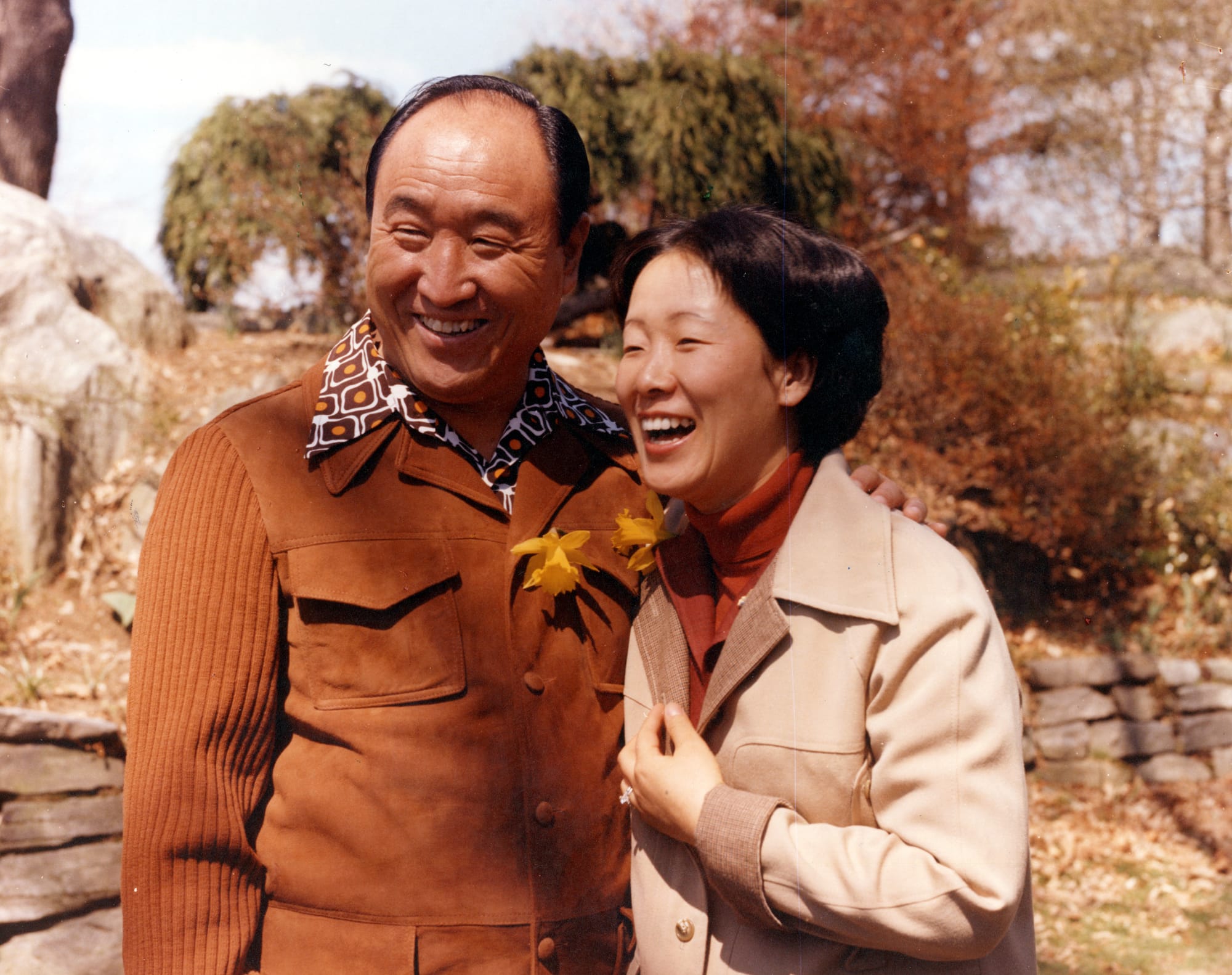
Enduring Life’s Hardships and Sorrows to Help People in Need
The believer who participates in human life, exposing himself to its torments and suffering, is worth more than the one who distances himself from its suffering. Hadith of Ibn Majah (Islam)
One who stays in the shade does not know the sun’s heat.9 Igala Proverb (African Traditional Religions)
A man should share in the distress of the community, for so we find that Moses, our teacher, shared in the distress of the community. Talmud, Taanit 11a (Judaism)
And as he sat at table in the house, behold, many tax collectors and sinners came and sat down with Jesus and his disciples. And when the Pharisees saw this, they said to his disciples, “Why does your teacher eat with tax collectors and sinners?” But when he heard it, he said, “Those who are well have no need of a physician, but those who are sick.” Matthew 9.10-12
If I have to be reborn I should wish to be born as an ‘untouchable’, so that I may share their sorrows, sufferings and the affronts leveled at them, in order that I may free myself and them from that miserable condition. Mohandas K. Gandhi (Hinduism)
It is not always physical bravery that counts. One must have the courage to face life as it is, to go through sorrows and always sacrifice oneself for the sake of others. Kipsigis Saying (African Traditional Religions)
We who are strong ought to bear with the failings of the weak, and not to please ourselves; let each of us please his neighbor for his good, to edify him. For Christ did not please himself; but, as it is written, “The reproaches of those who reproached thee fell on me.” Romans 15.1-3
Those who are morally well-adjusted look after those who are not; those who are talented look after those who are not. That is why people are glad to have good fathers and elder brothers. If those who are morally well-adjusted and talented abandon those who are not, then scarcely an inch will separate the good from the depraved. Mencius IV.B.7 (Confucianism)
A bodhisattva resolves, “I take upon myself the burden of all suffering; I am resolved to do so; I will endure it. I do not turn or run away, do not tremble, am not terrified, nor afraid, do not turn back or despond. “And why? At all costs I must bear the burdens of all beings. In that, I do not follow my own inclinations. I have made the vow to save all beings. All beings I must set free. The whole world of living beings I must rescue from the terrors of birth, of old age, of sickness, of death and rebirth, of all kinds of moral offense, of all states of woe… My endeavors do not merely aim at my own deliverance. For with the help of the boat of the thought of all knowledge, I must rescue all these beings from the stream of Samsara, which is so difficult to cross… I myself must grapple with the whole mass of suffering of all beings. To the limit of my endurance, I will experience in all the states of woe, found in any world system, all the abodes of suffering… “And why? Because it is surely better that I alone should be in pain than that all these beings should fall into the states of woe. Therefore I must give myself away as a pawn through which the whole world is redeemed from the terrors of hells, of animal birth, of the world of Death, and with this my own body I must experience, for the sake of all beings, the whole mass of painful feelings. And on behalf of all beings I give surety for all beings, and in doing so I speak truthfully, am trustworthy, do not go back on my word. I must not abandon all beings.”10 Sikshasamuccaya 280-81, Vajradhvaja Sutra (Buddhism)
“I should be a hostel for all sentient beings, to let them escape from all painful things. I should be a protector for all sentient beings, to let them all be liberated from all afflictions. I should be a refuge for all sentient beings, to free them from all fears… “I should accept all sufferings for the sake of sentient beings, and enable them to escape from the abyss of immeasurable woes of birth and death. I should accept all suffering for the sake of all sentient beings in all worlds, in all states of misery, forever and ever, and still always cultivate foundations of goodness for the sake of all beings. Why? I would rather take all this suffering on myself than to allow sentient beings to fall into hell. I should be a hostage to those perilous places—hells, animal realms, the nether world—as a ransom to rescue all sentient beings in states of woe and enable them to gain liberation. “I vow to protect all sentient beings and never abandon them. What I say is sincerely true, without falsehood. Why? Because I have set my mind on enlightenment in order to liberate all sentient beings; I do not seek the unexcelled Way for my own sake.” Garland Sutra 23 (Buddhism)
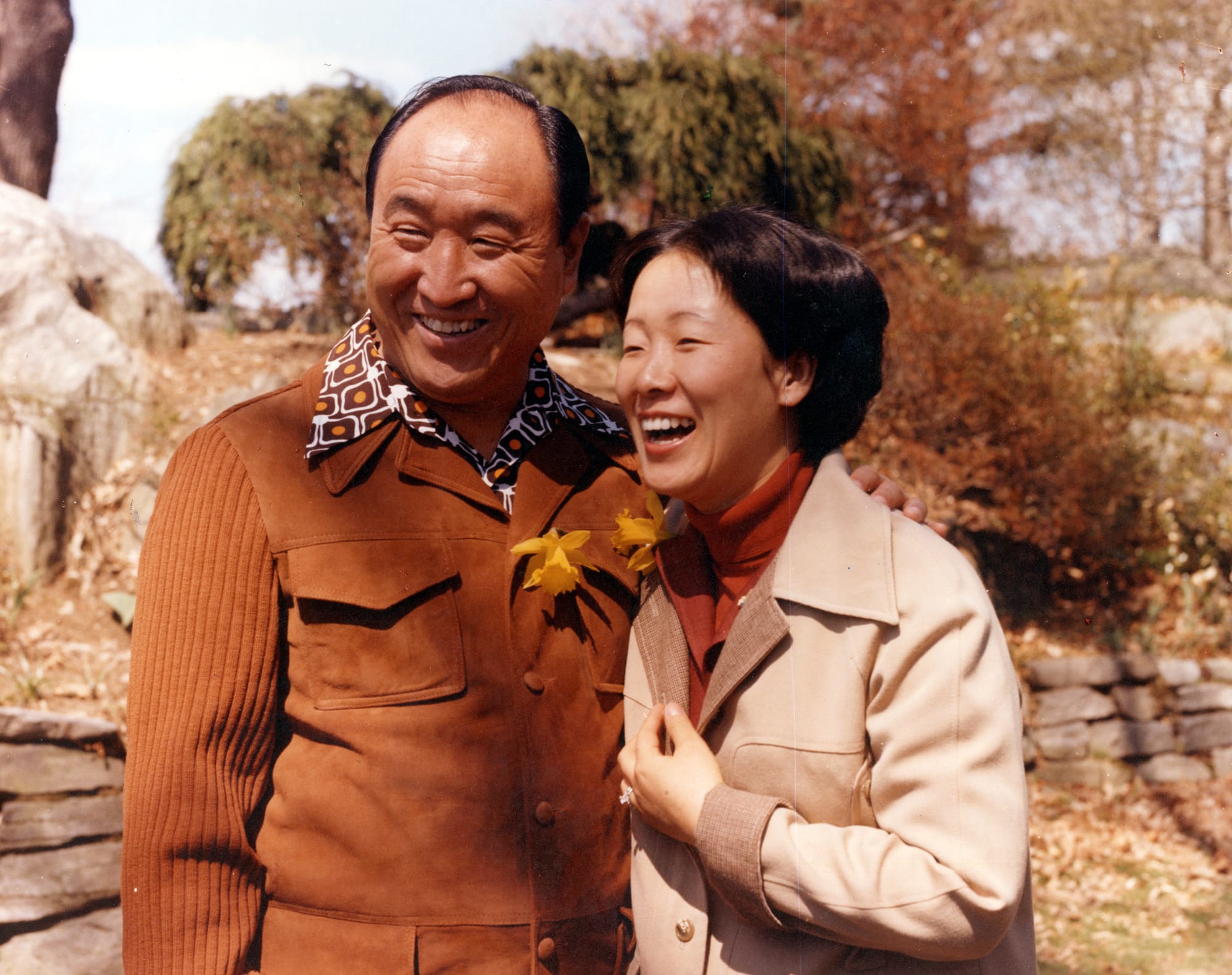
Teachings of Sun Myung Moon
To reach the Kingdom of Heaven, you must pass through hell. (Way of God’s Will 1.8)
Love always requires sacrifice, and it also requires overcoming. (46:35, July 18, 1971)
In my student days, whenever I came home from school I would change my student uniform for a laborer’s clothes and go out to do menial labor. It was not because I lacked for money, but because I wanted to experience the life of a laborer.
I carried coal, and worked on the docks and as a farmhand. I experienced every sort of job, to learn everything about the suffering and joys of working people. I thought it my responsibility to liberate them all. (37:35-36, December 22, 1970)
To bring happiness to this unhappy, chaotic world, we should conquer a path of misery and unhappiness. That means we have to taste the bottom of human misery. The only way we can liberate the misery of the world is by leading an even more miserable life.
If this way did not bring results, we would have to say that God does not exist. I walked the path of abuse and persecution throughout my life for this very reason. I determined that I would walk this path throughout my life. How would you fare in such miserable circumstances?
Are you someone who can stand, determined to do the will of God, and say, “Follow me! I am not discouraged, but full of joy”?
If so, then you can bring real happiness to the people in that wretched place. The people we respect as saints, heroes, patriots and exemplary women all became famous, historical figures only after enduring such circumstances.
America’s patriots tasted the misery of the nation’s travails and fought bravely to establish the nation at the risk of their lives. All the saints of this world, and all God’s sons and daughters, have done likewise. (91:287, February 27, 1977)
The law of priority of the universal and public upholds and protects people who sacrifice themselves for the whole. It eliminates people who only pursue their own benefit and hate to sacrifice. (105:91-92, September 30, 1979)
Some religious people pray, “Please let me go to the Kingdom of Heaven.” Those people are frauds. The proper attitude is this: a wife thinks to send her husband to the Kingdom of Heaven first and follow him there later.
It is wrong if she thinks she alone deserves to enter the Kingdom while abandoning her husband. Likewise, a son thinks to send his parents and siblings to the Kingdom of Heaven first and only afterwards to enter himself.
A loyal citizen would not want to enter the Kingdom of Heaven until he has sent his entire nation there first, even all the people of the world. Those who would first liberate God before they enjoy the delights of the Kingdom of Heaven are people who resemble Jesus. Their desire is in line with the Messiah’s responsibility.
The Messiah does not think, “I must quickly enter the Kingdom of Heaven.” He works to send individuals, families, tribes, peoples, nations and the world to the Kingdom of Heaven.
He even strives to liberate all the denizens of hell and send them to the Kingdom of Heaven because he is determined to carry all the sadness of God on his shoulders.
The Messiah never dreams of living happily in the Kingdom of Heaven alone. He is willing to enter the Kingdom only after he has liberated all humankind on earth and all the inmates of hell because he knows God’s sorrow. God does not feel comfortable seeing hell.
By creating the Kingdom of Heaven on earth and in heaven, the Messiah will release God from having to see hell. Only when he knows that God can relax upon seeing the work of salvation finished, will the Messiah enter the Kingdom of Heaven. (188:283-84, March 1, 1989)
